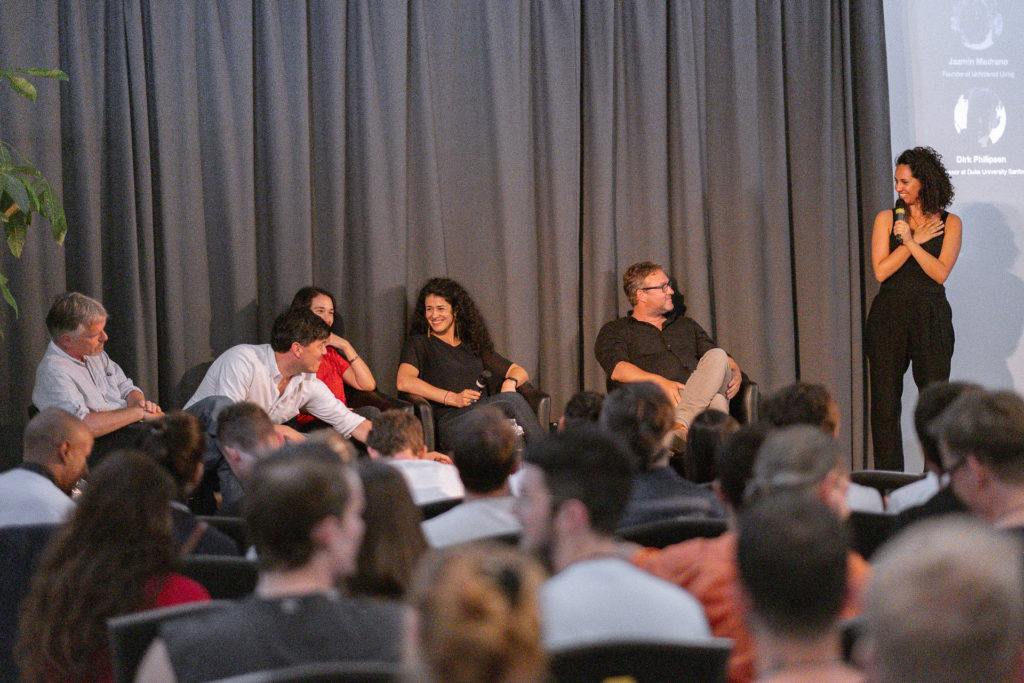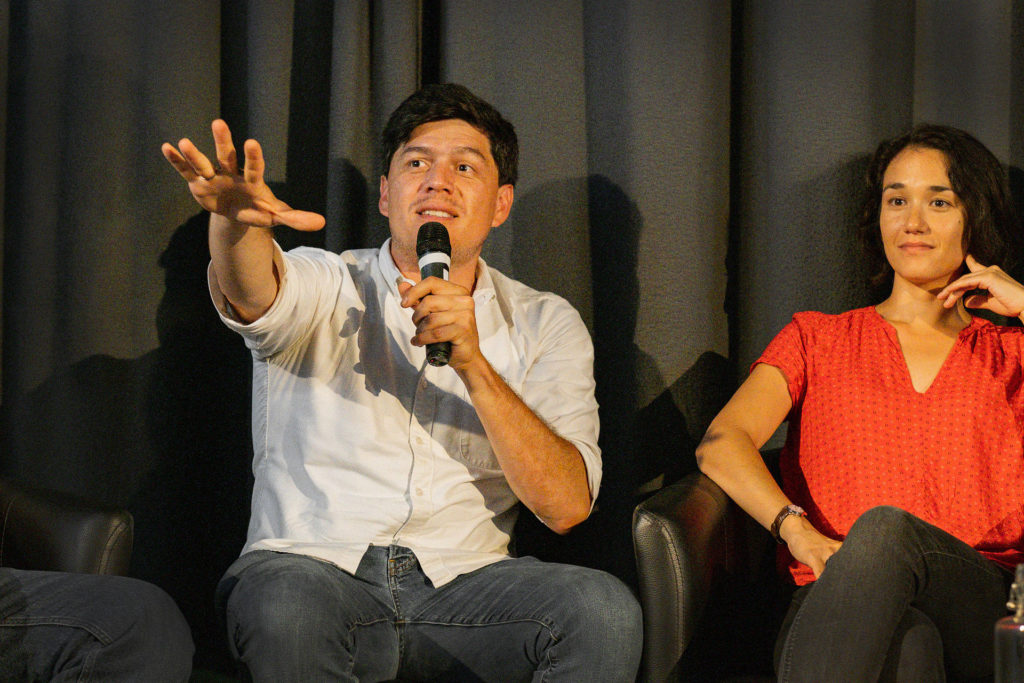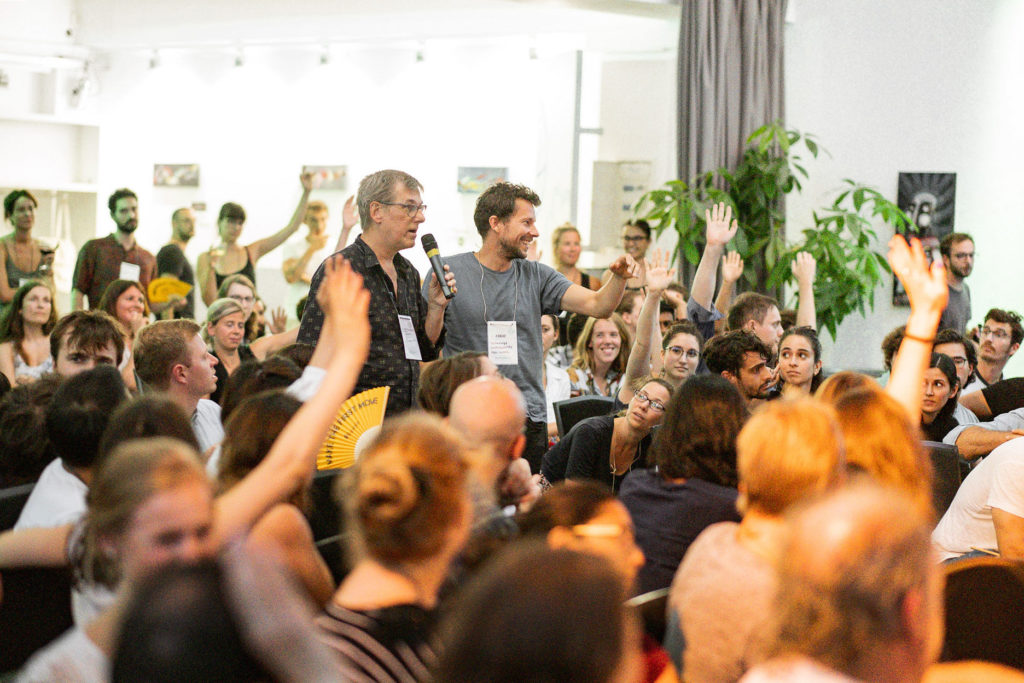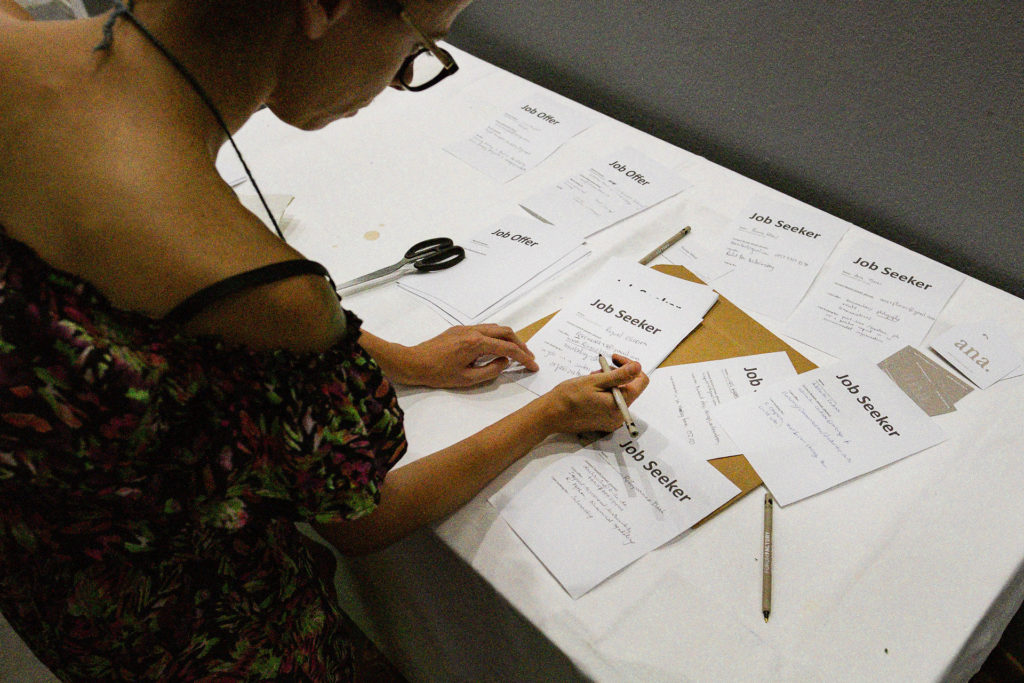
It’s a heavy question, and one that many of us probably ponder with anticipation. The shift that our economy needs to make in order to combat the climate crisis is huge, and facilitating a transition on such a scale seems overwhelming. Changes to our economic systems have already been made and are underway but they are insubstantial for the challenge we are facing.
GreenBuzz Berlin, in collaboration with Bumble, posed this question to a panel of professionals from different sectors.
It was refreshing to hear these pressing issues addressed with honesty, hope and passion. The presentations were met with engagement and curiosity from an audience that seemed eager for discussion and actionable information.
Our wonderful host Jasmine introduced our first speaker, Jessica Berlin, founder and Managing Director of CoStruct. Jessica helps governments, companies and nonprofit organizations tackle global challenges with sustainable, scalable solutions. She spoke about the need to build an economy that incentivizes sustainable choices.
Many people cannot afford to buy sustainable products and it is our responsibility as members of society to demand a shift in the way products are produced and priced, and put politicians into power who will facilitate that shift.
Corporations and startups should buy sustainable products whenever possible to show there is a demand for these business models and products. She concluded with ways to fight for a sustainable future: step up our game with recycling, engage politically, engage with people who don’t think like us—this is the responsibility we carry.
Next up was Juan Pablo Osornio, task force leader of Greenpeace. He has spent the last five years working on the transformation to a low-carbon economy in line with the 1.5 degrees Celsius limit. I found his ideas both sobering and uplifting. He began with:
“The world will be here long after we will, so what type of planet do we need to sustain life, to sustain the type of economy that we want to have.”
He continued, saying that scientists have done the numbers and if the temperature of the world goes above 1.5 degrees Celsius, life and society as we know it is going to end. If we continue to do things the way we have been, we’re going to cross that threshold somewhere between 2030 and 2050.

Juan challenged the notion that it’s either sustainability or growth, he thinks we can have growth and improve our quality of life. His approach to supporting a more sustainable economy lies in the way we consume goods in a capitalistic society. We reap the benefits of fossil fuels without dealing with the costs. It is our responsibility to take some of those costs now and leave some of the benefits for our children and for vulnerable populations who didn’t do anything to get us to where we are. He told us to look at the stranger sitting next to us and ask: how am I of interest to that person? Why should that person care about me? The future of our species depends on how we answer that question.
Anna Bonan, Internalization at the Purpose Foundation, spoke next. Up until one year ago she worked as a corporate lawyer for a tech company and was struggling to find meaning in her work. She attended a workshop at the Purpose Foundation that shifted her perspective. At the workshop they asked the audience, what is a company? It is a group of persons exercising a commercial activity with the purpose of sharing its profit. Most people at the workshop thought it was a group of people working together for a purpose, without mentioning profit. Anna realized that as a corporate lawyer she only focused on the legal definition, which was just interested in maximizing profits. She described it as a crazy run towards profitability which makes you blind. There is no concern for the environment, society, workers, or even the well being of the company in the long term. They just want big numbers in short term. She emphasizes:
We need to rethink the core of a company.
The core should be ownership, giving owners absolute power over the company. Companies are the motor of our economy, so if our economy is ill, we need to heal it at the core. Purpose Foundation helps companies shift to a responsible and sustainable ownership, which consider profits as a means to an end but not as a purpose itself. This model ensures that owners are closely connected to their business. To close, she revisits the topic: Can the economy support sustainable world? Only if the economy itself, at its very foundation, becomes sustainable. Only if we have a lot of responsible acting companies, provoking a shift from profit maximization to purpose maximization.
Dirk Philipsen, Professor of economic history at Duke University, spoke next. He began with the statement:
“We as earthlings, as people on this planet, face today greater challenges than we ever have before.”
He goes on to say that we have greater opportunities to create something really awesome. He doesn’t believe it is largely a choice we can make as citizens, voters or consumers. There is something baked into the DNA of our economy that doesn’t allow us to move in the right direction. He believes that in the short term this economy will never be sustainable. The reason lies in the unsustainable practice of measuring GDP. Economic growth cannot be sustainable because “healthy” growth is 3 percent—it’s exponential and it values quantity over quality. We would need to double output every 28 years, which cannot work. In conclusion Dirk states:
“What we need to do is change the operating logic of the economic system, we have no choice, as long as we have an operating logic that needs to grow, it’s driving off the cliff.”
Lastly we had Claas Kauenhowen, entrepreneur, coach, trainer and visionary. He spoke about the process of unlearning certain things that society taught us not to question. He said that understanding the systems we are working in and the impact we have is one of the first steps to making change. He emphasizes the importance of practicing mental hygiene so that we are capable of contributing to the shift that is happening. The shift must come from the bottom up, we cannot expect it from the top down. He finished with: “They will not find agreement, but we as humanity can and we should start. ”

We then had questions from the audience and a panel discussion, which raised some very interesting topics—I suggest watching the video. This was followed by quick pitches; you can find more information on these at the event page. We wrapped up with a networking session, which included a jobs corner to bring together people seeking employees and jobs.

A big thanks to Bumble for sponsoring, Jasmine for all her work and Forum Factory for hosting us.
Our next event will be Rethinking tourism: How can we make traveling more sustainable? We look forward to seeing you there!
- Event Review: Sustainable Tourism - September 17, 2019
- The Big Picture: Can the Economy Support a Sustainable World? - August 20, 2019
